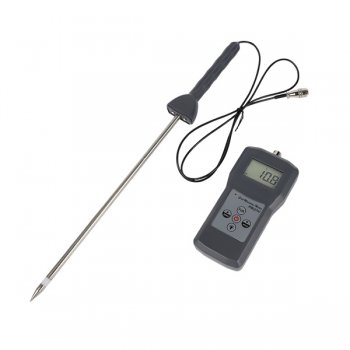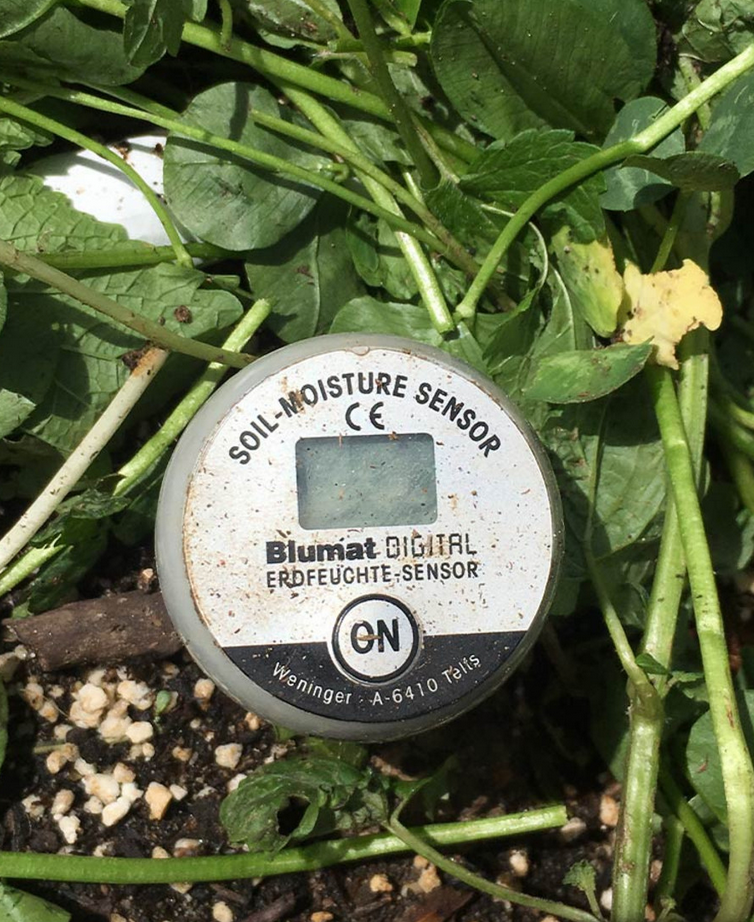The Ultimate Overview to Moisture Meters: A Comprehensive Review and How They Can Conserve You Money
In the realm of building maintenance, construction, and numerous markets, the importance of precisely measuring moisture degrees can not be overemphasized. Dampness meters act as indispensable devices in detecting and checking moisture material in materials, aiding in preventing expensive damages and making sure the quality of items. Understanding the nuances of different sorts of moisture meters, their applications, and the possible cost-saving advantages they supply can be a game-changer for organizations and professionals alike. Discovering how these gadgets can not only improve procedures but likewise add to economic savings is a journey worth getting started on.
Sorts Of Moisture Meters
One usual type is the pin-type moisture meter, which determines the electric resistance in between two pins inserted right into a product. Pinless wetness meters, on the other hand, use electro-magnetic sensor plates to check a bigger area without causing damage to the product's surface area.
Infrared dampness meters determine the thermal buildings of a material to establish its wetness web content non-invasively, making them helpful for applications where pin or pinless meters might not be appropriate. Recognizing the various types of dampness meters available can assist sectors choose the most suitable tool for their details wetness dimension requirements.

Benefits of Making Use Of Moisture Meters

In addition, utilizing wetness meters can bring about raised power performance. By determining areas with high wetness degrees, such as leaks or poor insulation, adjustments can be made to improve energy preservation and reduce energy prices. In farming setups, wetness meters play a crucial function in enhancing plant yields by enabling farmers to check dirt wetness levels and make educated watering decisions. In general, the advantages of using moisture meters cover throughout different sectors, supplying economical solutions and advertising much better quality assurance techniques.
Just How to Choose the Right Moisture Meter
Picking the appropriate moisture meter entails thinking about key variables such as material compatibility, dimension range, and calibration accuracy. When choosing a moisture meter, it's important to ensure that the meter is ideal for the specific product you will be testing. Different materials have differing electrical properties that can impact wetness readings, so choosing a meter created for your product is vital for exact results. In addition, take into consideration the measurement range of the wetness meter. Make certain that the meter can detect wetness levels within the variety required for your applications. Calibration accuracy is one more vital factor to remember (Moisture Meter). Select a moisture meter with trustworthy calibration to guarantee accurate and constant analyses. Some meters may need periodic calibration adjustments, so comprehending the calibration procedure is essential. By thoroughly assessing these elements, you can choose a dampness meter that fulfills your demands and supplies exact wetness measurements for your jobs.
Appropriate Techniques for Moisture Meter Usage
To ensure precise moisture analyses and optimize the efficiency of a dampness meter, utilizing correct techniques is essential. When making use of a pin-type dampness meter, insert the pins or probes into the product being evaluated up until they make complete get in touch with. Make certain the pins are perpendicular to the surface to obtain the most exact reading. For pinless wetness meters, hold the gadget flat versus the product and relocate it slowly to cover the entire location for a typical analysis. It's important to calibrate the wetness meter according to the material being examined to enhance accuracy. Take numerous analyses across the surface and ordinary them out for an extra dependable result. Additionally, make sure that the material being checked is accommodated to the atmosphere to prevent manipulated readings. Routine maintenance of the wetness meter, such as cleansing the pins or sensor, is also essential to make sure accurate and regular readings. By adhering to these proper techniques, customers can depend on their dampness meter to supply credible moisture degrees, assisting in protecting against expensive damage or ensuring high quality in different applications.

Cost Financial Savings Through Moisture Meter Applications
How can the tactical usage of moisture meters lead to Website significant cost savings across different sectors? In the farming industry, wetness meters aid in identifying the optimal time for harvesting crops, stopping over-drying or excess dampness that can impact the last product's top quality.

Additionally, in the food processing industry, moisture meters are necessary for keeping track of product quality and making sure conformity with safety and security guidelines. By accurately gauging moisture web content in foodstuff, makers can stop spoilage, preserve freshness, and lower waste, leading to considerable price savings. Generally, the critical application of dampness meters is a beneficial financial investment that can result in significant price decreases and boosted performance across different industries.
Final Thought
In conclusion, wetness meters are beneficial tools for measuring and spotting wetness levels in various products. By using the ideal dampness meter and complying with appropriate techniques, users can effectively prevent costly problems created by excess moisture.
Moisture meters serve as crucial tools in identifying and checking moisture content in products, helping in navigate here stopping pricey damages and making sure the quality of products. Infrared moisture meters gauge the thermal homes of a product to determine link its moisture material non-invasively, making them valuable for applications where pin or pinless meters may not be ideal.Moisture meters use important benefits in precisely examining and keeping track of dampness levels in varied materials and atmospheres. In agricultural settings, moisture meters play an essential function in enhancing plant returns by enabling farmers to keep track of dirt dampness levels and make notified watering decisions.In conclusion, wetness meters are valuable devices for determining and finding wetness degrees in numerous products.